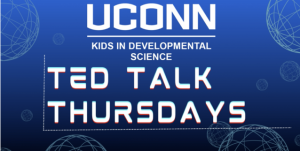

In this talk, Dr. Michalska explores how children who struggle with aggressive behaviors, often diagnosed with what psychologists call Conduct Disorder, differ in the way their brains process empathy and emotional pain in others. She explains how children who repeatedly break rules, hurt others, or show little remorse can have variations in brain regions tied to feeling other people’s pain and understanding social cues. By using neuroimaging research, she shows that these kids often have dampened responses in areas like the insula (which helps us feel what others are feeling) when they witness someone else being harmed. Because of this diminished “emotional mirror,” it becomes harder for them to connect their behavior to how others feel, which in turn can make harmful behavior more likely. Understanding this brain-based perspective doesn’t excuse the behavior, but it helps explain why it happens and opens the door to more empathetic, targeted interventions that help children build stronger emotional-social skills, rather than simply punishing them.
To watch this Ted Talk, click here!
Erin Mulroy
UConn KIDS Research Assistant